KingKhanWC
World Star
- Joined
- Jan 2, 2010
- Runs
- 51,351
This topic comes up ever year.
The truth is this is ethnic discrimination not religous.
Majority of Chinese Muslims practice their religion without any restrictions.
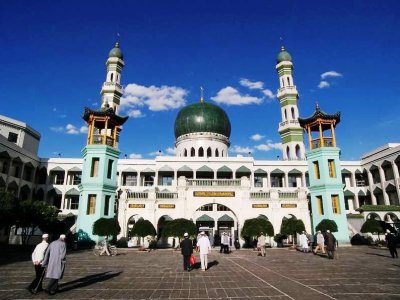
http://news.xinhuanet.com/english/china/2012-07/21/c_123448925.htm
The truth is this is ethnic discrimination not religous.
Majority of Chinese Muslims practice their religion without any restrictions.

Chinese Muslims celebrate Ramadan
XINING, July 20 (Xinhua) -- More than 20 million Chinese Muslims on Friday celebrated the first day of the one-month Ramadan festival across China.
In the 600-year-old Dongguan Mosque, located in Xining, provincial capital of northwest China's Qinghai province, tens of thousands of Muslims entered and gathered there to attend the morning prayer on Friday.
"The month of Ramadan is the greatest and most revered month for Muslims, and the prayer on the first day is also extremely important," said Ma Yongliang, who runs a logistics company in Xining city.
Han Jing, 17, said she would get up at 3 a.m. every morning during Ramadan to prepare food for her family.
Han said she would stay with other women at home, while the men would go to the mosque during the month. Even though they will suffer from fast, she believes that's a way to get closer to Allah.
During Ramadan, the ninth month of a year in the Muslim calendar, the Muslims refrain from eating, drinking, smoking and sex from sunrise to sunset. But children, the elderly and the weak do not have to observe the fast.
Ma insists to pray five times every day, and follows the business rules of integrity and trustworthiness according to Islam.
"We have been abiding with the sermons of the Koran for centuries. Although our lives have undergone rapid changes, we still hold strong faith," Ma said.
Thanks to the support of the Chinese government, the ethnic groups in the impoverished western areas have developed their dominant industries in recent years, slowly eradicating poverty.
In Ningxia Hui autonomous region, one of the main Muslim-populated regions, the predominantly Muslim Hui ethnic group developed the Halal food industry.
In 2011, the Halal food industry in Ningxia generated an output value of 10.3 billion yuan (1.6 billion U.S. dollars), up 13 percent from a year ago. And the total output value of the Halal food industry in this region is expected to reach 20 billion yuan by 2015.
In a branch plant of Qinghai Yijia Buhala Nation Fashion China Co., Ltd., located in Hui-Tu autonomous county of Datong in Qinghai province, the homegrown Muslim traditional cap and clothing have been exported around the world.
"I can not only take care of children and elderly people in my family, but also do some work at home which I get paid for," said Han Yan, a worker of the plant, adding that the work never affected her worship.
"Female Muslims could hardly earn money in the past, but the work is conducive to raise the status of a female in a family," said Han Decheng, president of the company.
Moreover, in the Hui autonomous county of Hualong, more than 67,000 practitioners went out and opened over 10,000 restaurants selling traditional Hui food, such as hand-pulled noodles.
But for most Muslims, their biggest dream is to go to Mecca, Saudi Arabia, their holiest city.
"Some elders in my family have been there, and I should realize my dream as well," said Ma.
In 1997, the first chartered plane for Chinese pilgrims flew from Beijing to Jeddah, an important gateway to Mecca. Direct chartered flights later linked Beijing, Lanzhou, Urumqi, Yinchuan, and Kunming to Medina, the second holiest city, which is north of Mecca.
According to statistics, more than 13,800 Chinese pilgrims went to Mecca in 2011.
http://news.xinhuanet.com/english/china/2012-07/21/c_123448925.htm






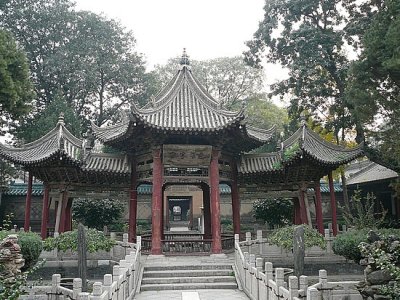
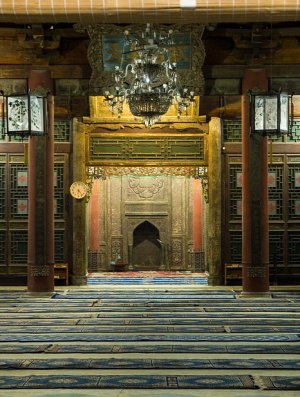
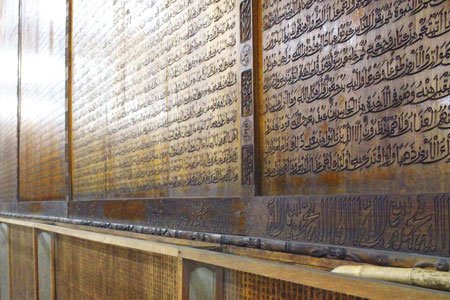

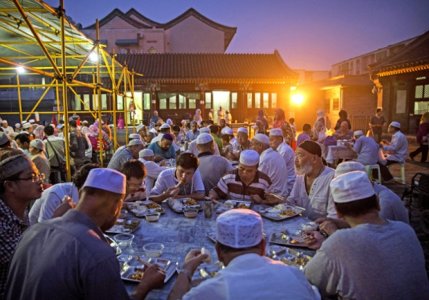
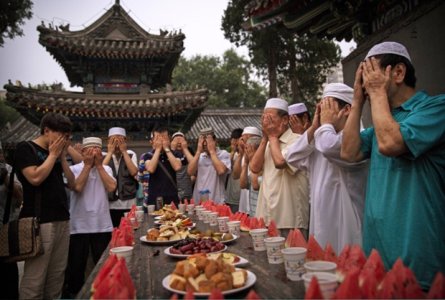
 )
)

